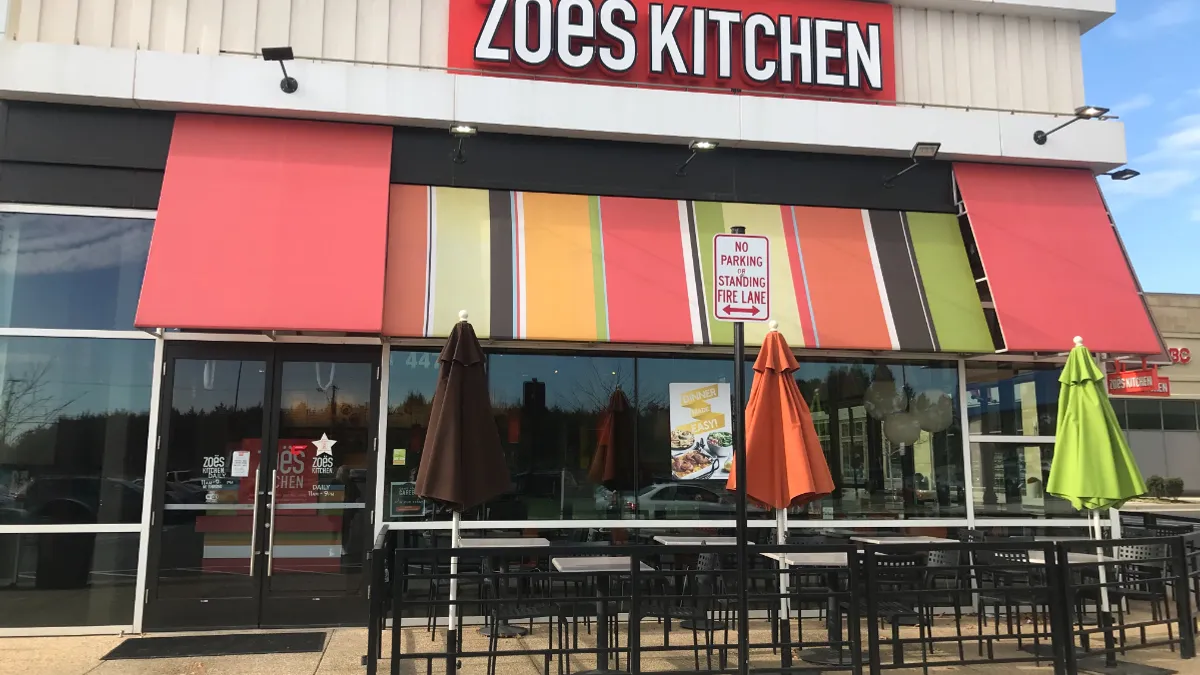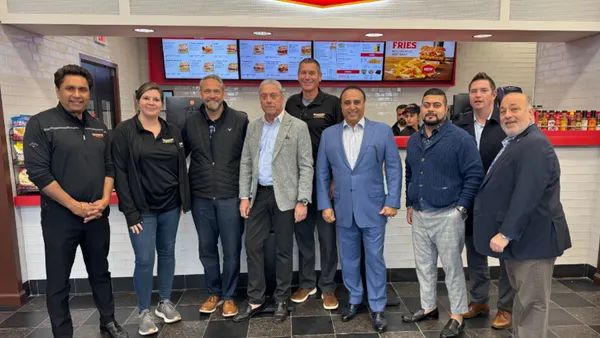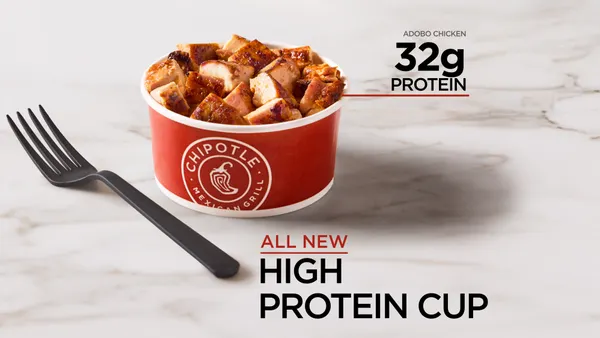Dive Brief:
- Cava is planning to expand into new suburban markets by converting existing Zoës Kitchen locations. Cava Group acquired Zoës in late 2018, adding 261 stores to its portfolio. So far, seven Zoës locations have been converted. The restaurant has another 12 are in the works for this year in a mix of urban and suburban locations, a Cava spokesperson said.
- Cava Group told CNBC that flipping Zoës locations into Cava locations is quicker and less expensive than building a new restaurant. Nearly 80% of Cava's restaurants are located in suburban markets, and Cava CEO Brett Schulman told CNBC revenue growth opportunity exists with these conversions.
- "We saw the shift to suburban living coming far before the pandemic, which supported our thesis to acquire Zoës Kitchen in 2018," the Cava spokesperson said. "Our goal has always been to bring CAVA to more communities, and with the acquisition, we were able to strategically expand and diversify our real estate portfolio, unlocking significant value through scale and cost-effective real estate conversions."
Dive Insight:
One of Cava's strategies with the acquisition of Zoës Kitchen was to expand rapidly and establish a bigger national presence. At this point, suburban markets seem like the best path to achieve such a goal. The Brookings Institute found that populations grew more rapidly in cities than suburbs from 2010 to the first half of 2015, but that trend began to reverse during the 12 months ending July 2016 and COVID-19 has significantly exacerbated that trend.
"As the pandemic accelerated the shift towards suburban life with people moving from major cities at a faster rate than ever before, we were able to accelerate plans to convert Zoës locations to continue meeting customers where they are," a Cava spokesperson said.
Cava's position in the fast casual segment could also provide a boon for the chain. Technavio forecasts the fast casual market to experience a compound annual growth rate of over 12% from 2020 to 2024. Consumers have gravitated to quick-service food in droves during the COVID-19 crisis, and as recovery is underway, some analysts believe there may be pent-up demand for fast casual's perceived higher quality at a still-affordable price point.
As more fast casuals digitize the customer experience through curbside pickup or contactless payments, that should also help fast casuals better challenge their QSR peers, according to Jean Chick, principal and U.S. restaurant & food service leader at Deloitte. Cava had off-premise, digital kitchens and was expanding into mobile order drive-thru lanes before the crisis, which should continue to position the chain well.
Since the beginning of the pandemic, cities have lost 400,000 jobs, according to Gusto data reported last month. A broader adoption of remote work in response to pandemic conditions could exacerbate this trend even further. According to Bloomberg, about 40% of all jobs can now be done remotely, while only 7% of U.S. employees worked from home in 2010, and several major companies are planning on offering remote work permanently.
These trends have led to a "potential major turning point" in how companies think about real estate, according to Cushman & Wakefield. More companies will likely adopt a "hub and spoke" model with smaller offices in suburban locations, while others will provide more work-from-home flexibility.
As such, several restaurant concepts have recovered more quickly in their suburban locations and have turned their focus to suburban growth. During its most recent Q4 earnings call, for example, Shake Shack President and CFO Tara Comonte said its suburban locations generated nearly flat same-store sales, versus a decline of 17.4% in the overall system. The company plans to build a broad mix of formats in its suburban markets where many companies have given up sites.
Starbucks and Chipotle are also eyeing the suburbs. Chipotle's growth in those markets will come largely from its Chipotlane model, with plans for 70% of its 2021 openings slated to be Chipotlanes.
Emma Liem Beckett contributed to this article.











